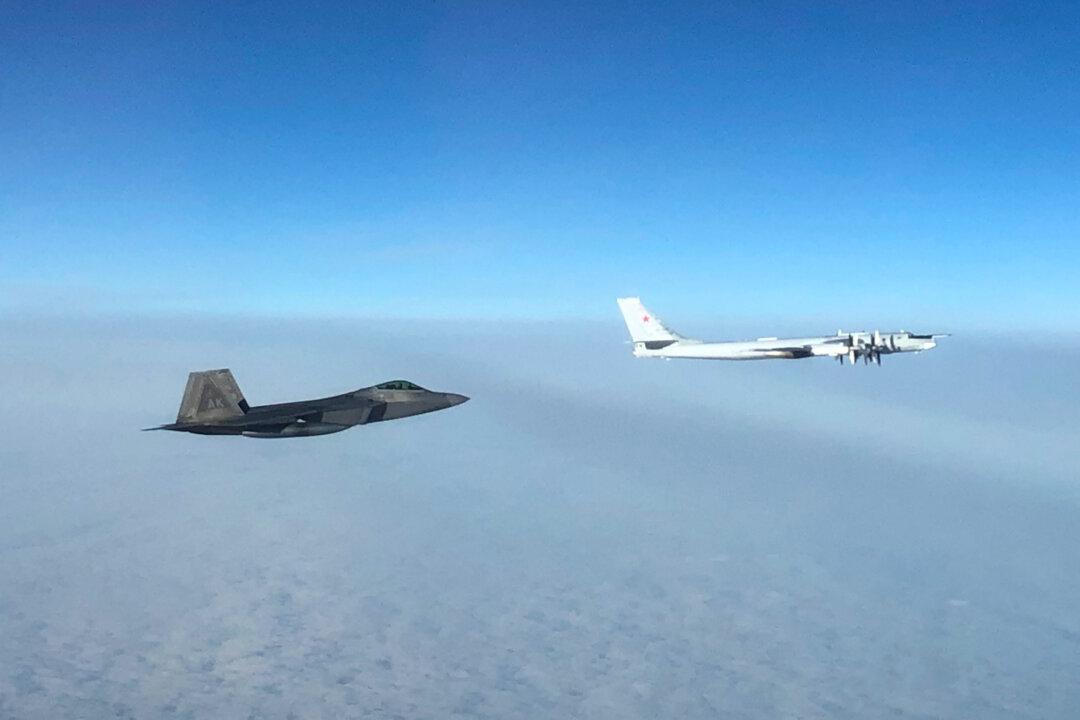F-22 “Raptor” fighter jets late Monday intercepted four Russian warplanes and identified a fifth flying within 30 nautical miles (34 miles) off the Alaskan coast, according to North American Aerospace Defense Command (NORAD).
NORAD confirmed in a Tuesday Twitter post that its F-22s, supported by the E-3 airborne warning and control system and a KC-135 “Stratotanker” refueling aircraft, had intercepted two Russian Tu-95 bombers escorted by two Su-35 fighters.





